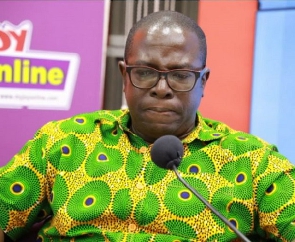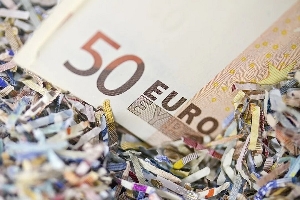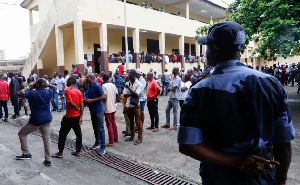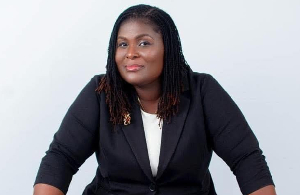A medical doctor and financial advisor, Dr Yaw Perbi could not hold back tears while speaking on government’s Domestic Debt Exchange Programme (DDEP) and how it has affected him.
According to him, he sacrificed student loans and some entertainment among others just to gain principal to buy government bonds.
“We sacrificed student loans and some entertainment among others. And now, those who were just blowing their money are laughing at us. They’ll be saying ‘you should have chopped the money’,” he said on Monday.
Dr Yaw Perbi said he convinced many of his friends who are health practitioners in the country to invest but he is now pained things have turned out like this.
“Part of the reason I came here was to let the several tens and thousands of people who have invested to know that this is not a Ponzi Scheme. They did the right thing.
“I am trying to convince myself that I did the right thing, I did not leave them to go and throw themselves over a cliff. We did the right thing but our leaders have not done the right thing by us and they need to be called out on it,” myjoyonline.com quoted.
Background:
The only hurdle to the government of Ghana getting the $3 billion it is seeking from the International Monetary Fund appears to be the government's inability to prove to the Fund that its debts are sustainable.
To do this, the government has come up with the voluntary Domestic Debt Exchange Programme (DDEP) to deal with its domestic debts. It has also come up with some measures, including the country joining the Paris Club to deal with its international debts (to have the foreign debts delayed or forgiven).
With the DDEP, the government is seeking to restructure approximately GH¢137.3 billion of the domestic debts it accrued through bonds it issued, including the E.S.L.A. Plc and Daakye Trust Plc, and per the requirement of the IMF, 80 percent of the country’s total debts must be subject to this debt exchange programme.
However, the government has been struggling to get the needed stakeholders to sign up for the DDEP to meet the required standard and has extended the deadline for the programme several times.
NYA/WA
General News of Monday, 6 February 2023
Source: www.ghanaweb.com













